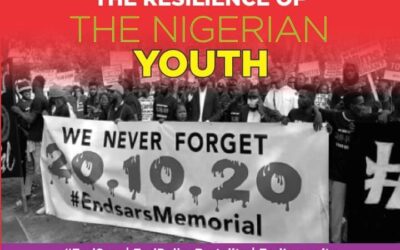Former United States' ambassador to Nigeria, Walter C. Carrington, has identified godfather syndrome and moneybag politics as issues militating against the advancement of democracy in Nigeria.
Carrington who spoke in Lagos yesterday noted however that a lot of progress has been made since the military rule of the late maximum leader, General Sani Abacha, when he was serving as an ambassador in Nigeria.
The envoy therefore wants Nigerian political system to identify the source of money channeled into electoral campaigns especially to find out if taxes were paid by sponsors.
"We may not care very much about the source of money but have you paid your taxes for the money you use?" he said, adding that such questions would make would-be sponsors feel that they might lose more than gain.
He stressed that the influence of money in politics is corrosive as he compared the United States democratic system to that of Nigeria, saying in America, political parties serve to help a candidate achieve his ambition and once that is done, the allegiance of the candidate is to the citizenry and not to the party or any godfather.
"If it were to be in Nigeria, neither Senator Barack Obama nor Senator John Mccain would have made it (to become party presidential flag bearers) because none of them belonged to the top party elite or hierarchy and in the case of Mccain, he did not get the support of the White House," he said.
The ambassador said he was optimistic that the new era of political opportunity in the country now offers the citizens the right to choose their leaders .
Carrington made a case for the troubled Niger Delta region by describing it as one of the unfinished projects of the Nigerian nation, pointing out that the indigenes need to be treated fairly.
He made a comparison of the area with Texas and Oklahoma which produce oil for the United States, noting that in the case of the US the oil producers are well taken care of.
On the role of the press in the country's democracy, the envoy applauded the media , stating that it has been very active and that "if you have the press that people can trust as the voice of the people then it would serve as a vital support for democracy."
He said that a partisan press cannot be a bulwark for democracy and cautioned Nigerian media on sensationalism.
On anti-corruption fight in the country, Carrington said that going after opponents rather than people alleged to be corrupt is not the best way of fighting corruption like in the past administration. He however expressed the hope that the system has changed, adding that any anti-corruption body has to be independent.
Carrington served as the American ambassador to Nigeria from November 1993 to October 1997. His posting to Nigeria returned him to a county he first visited as a leader of an Experiment in International Living student group in 1959.
He married a Nigerian and in recognition of his championing of human rights during his ambassadorial tenure,the Eleke Crescent occupied by the American and dozen other foreign missions in Victoria Island was named after him.
The ambassador is presently writing a book on Nigeria.
THISDAY ONLINE
Paul Ohia, August 26 2008




